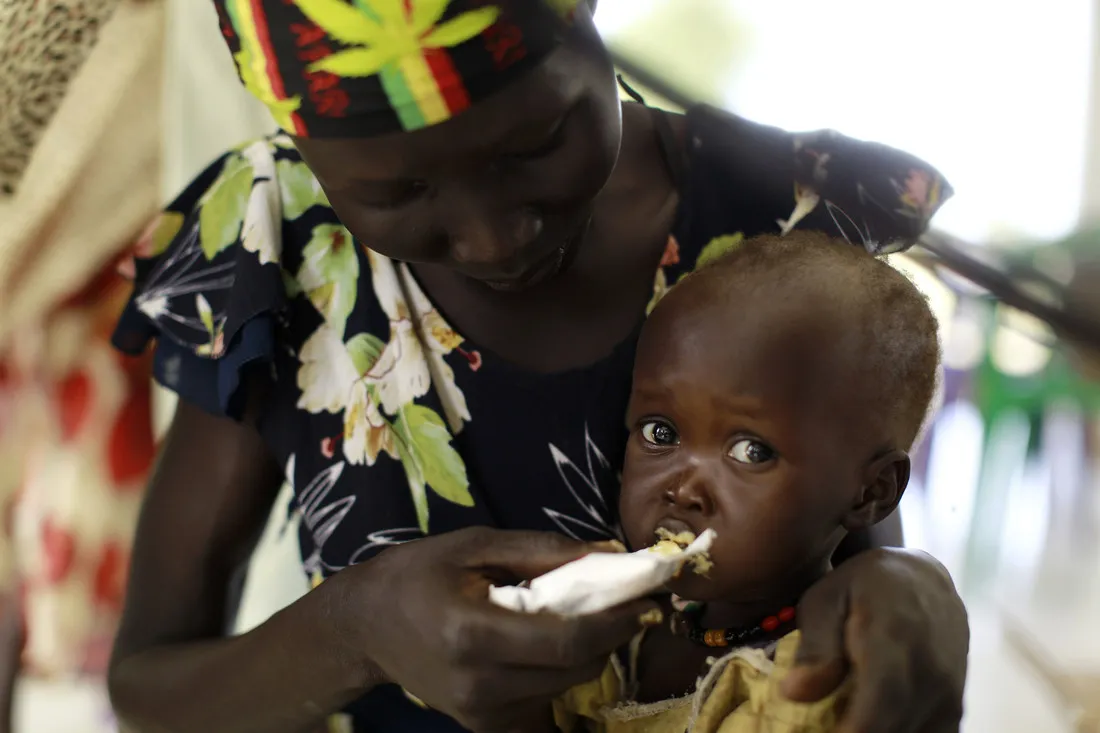Juba, South Sudan, 11 March 2021 — Amidst a backdrop of the global COVID-19 pandemic, the humanitarian crisis in South Sudan is reaching devastating new levels with over 8.3 million people1 now in need of urgent humanitarian assistance and humanitarian agencies struggling to meet lifesaving needs.
Continued conflict and violence, two years of devastating flooding, and some of the worst food insecurity in recent years have all converged to leave parts of the country in the most critical humanitarian situation since the 2017 localised famine. Over 7 million people are projected to be in a crisis state of food insecurity by April 2021 with the situation continuing to worsen. The greatest concern is that over 100,000 people are anticipated over the next several months to be in ‘catastrophic’ levels of food insecurity, at risk of dying from starvation, malnutrition and related disease2.
Significant additional funding was allocated by the UN in late 2020 to try to avert further deterioration in the worst affected parts of the country, but NGOs are increasingly concerned that conditions are continuing to worsen and time is rapidly running out to prevent a catastrophic famine. NGOs visited Pibor and Akobo on 9th March with the UN Humanitarian Coordinator and heard that despite significant effort ongoing by national and international NGOs to respond to the crisis, men and women in Pibor are worried that the already dire situation will get even worse as the rains start and harvests come to the end in coming weeks.
“Women, men and children in Pibor who have been through years of repeated conflict and flooding tell us today that they are living through one of the worst periods of hunger in years. Without an immediate and significant increase in humanitarian assistance, more people will die of entirely preventable causes.” – Rosalind Crowther, CARE International Country Director
Alongside the overwhelming level of needs, humanitarian agencies have faced increasing threats and attacks against their operations and staff members. 2020 saw a significant increase on humanitarians being targeted and killed in South Sudan. Attacks on humanitarians and health workers have already been seen across the country in 2021, continuing the alarming trend. In Warrap State, where thousands are suffering from catastrophic hunger and malnutrition, humanitarian services have been severely disrupted by outbreaks of violence with NGOs unable to bring critical life-saving assistance to those who need it.
Given the depth and scope of the humanitarian crisis, NGOs across South Sudan are calling on national and international parties to act immediately. Unhindered access to civilians must be guaranteed and an urgent and massive scale up of the humanitarian response is needed to prevent devastating loss of life.
For More Information:
Rachel Kent
Senior Press Officer
Rachel.Kent@care.org

